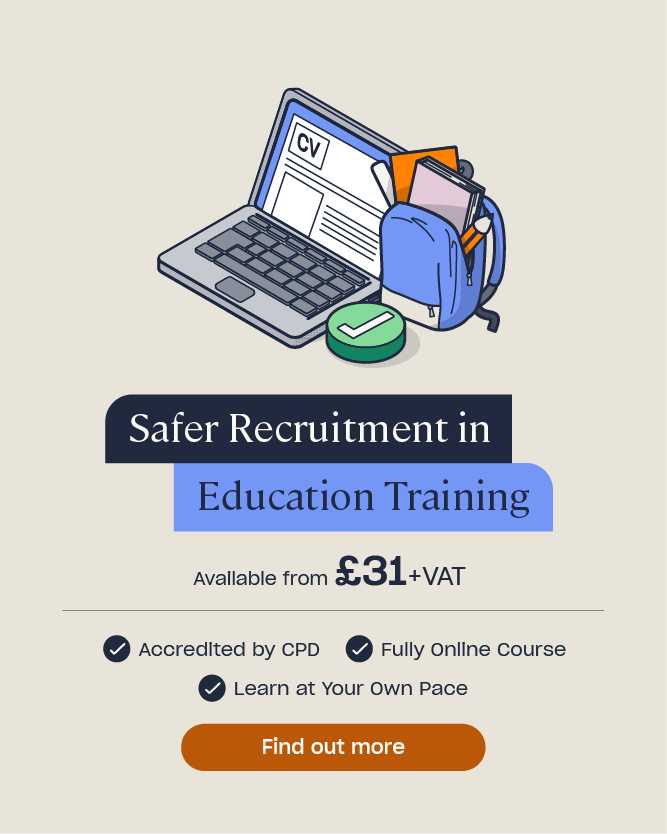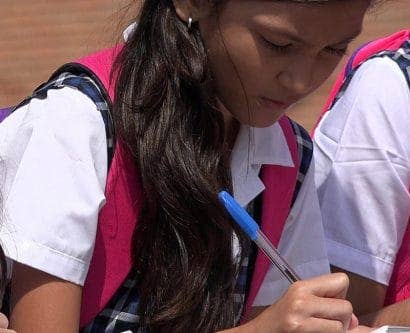Single Central Record: KCSIE Guidance for Schools
All schools and academies have safeguarding duties which they must comply with to keep the children in their care safe from harm. An essential part of this is to ensure that extensive recruitment and vetting checks are carried out on all staff, including those who are from an agency. The collation and storing of this information is called the single central record (SCR) and is a requirement under the Keeping Children Safe in Education (KCSIE) statutory guidance.
In this article, we will explain what the single central record is, a checklist of what you must include in it, and provide you with guidance to ensure you meet legal requirements. This information will be particularly beneficial if you are involved in recruitment for schools or college or work within an educational setting.
What is the Single Central Record?
The single central record is evidence of the required pre-appointment checks that have been carried out on all staff at schools and colleges. This method of conducting checks and recording certain information is a legal requirement in the UK under the Keeping Children Safe in Education statutory guidance. It is referred to in the Regulations as “the register”, but is most commonly known as “the single central record”.
Want to Learn More About KCSIE?
The Keeping Children Safe in Education statutory guidance is updated annually. It is essential that you are aware of key changes which you must implement and follow at your school or college. To find out more about the guidance, take a look at our article Keeping Children Safe in Education: Key Changes.
Schools and colleges have a legal duty to safeguard children from harm. The background checks that make up the single central record are crucial to ensure children are protected. These checks confirm that the person being employed to work is who they say they are, along with being qualified to do the job. It also checks whether they have a history which could put children at risk.
All staff in a school or college must be covered by the single central record. For schools, this also includes teacher trainees on salaried routes and agency and third-party staff, even if they only work for a day. Colleges must maintain details of all staff, including supply and agency staff who provide education to children under 18 years old. While independent schools must keep a single central record of all members of the proprietor body. For academies and free schools, this refers to all members and trustees of the academy trust.

Every school and college must maintain their single central record. You may be required to show it to Ofsted or ISI during routine inspections. The record can be in either paper form or held electronically. Often, records are held on a spreadsheet.
You may wish to create one for each individual, for each category of staff or for all records. You can create your own single central record template, or use one of the online platforms available instead.
Single Central Record Checklist
The single central record should state the staff member’s full name, job title and start date. You must include whether the required checks have been carried out or certificates obtained, including the date each check was completed or certificate received. Information on the following checks and certificates must be included in the single central record:
- An identity check. This verifies that the individual is who they claim to be and confirms that relevant documents have been reviewed and approved. For example, a physical copy of their passport and/or driving licence. See the GOV.UK website for further guidance.
- A check to confirm the individual’s right to work in the UK. For British and Irish citizens, you should check their original documents, such as passports, or use an identity service provider instead. If reviewing the applicant’s original documents, you must confirm they are valid with the applicant present and make and keep copies of the required documents. Other applicants may be able to provide you with an online share code which proves their right to work in the UK. You can find more information about checking an individual’s right to work in the UK, here.
- An enhanced DBS check (with children’s barred list check) requested or a certificate provided. A DBS check is carried out by the Disclosure and Barring Service (DBS) at various levels. The type required here is the highest level available and checks whether the individual has any spent or unspent convictions or adult cautions, if any information that’s relevant to the job role that is held by the police and checks the children’s barred list.
- A standalone children’s barred list check. This is a check of the databases that hold information about individuals who have been banned from working with children due to their past behaviour or offences.
- A prohibition from teaching check. You can use GOV.UK’s Teacher Services platform to view their restrictions list and check whether someone is prohibited from teaching in England. This includes information on how this affects the type of work an individual can be employed to carry out. Note that colleges aren’t legally required to record this information, though they must have efficient record keeping processes in place as a requirement of the funding they receive.
- Further checks on people who have lived or worked outside the UK. The KCSIE guidance contains specific information on the additional checks that are required for staff who have lived or worked outside of the UK. Any further checks that schools or colleges deem appropriate must be completed to ensure any other circumstances are considered.
- Where required, a check of professional qualifications. This may include qualified teacher status (QTS) or higher level teaching assistant (HLTA) qualifications.
This is the minimum information you are required to record of all staff members. GOV.UK provides useful guidance on teacher status checks, including a Teacher Services platform which is a free service to check the status of a teacher.
Additional Requirements
You may need to be aware of the additional requirements in certain circumstances and environments. For any agency and third party staff, you must include the following information:
- Whether written confirmation that the supply staff’s employer has completed the required checks and gathered the necessary certificates has been received.
- The date this written confirmation was received.
- Whether the supply staff has given details about any enhanced DBS certificate.
Colleges and independent schools (including academies and free schools) must include additional information in the single central record. For staff at colleges, you must record whether the individual’s role involves ‘relevant activity’. This means whether they will regularly care for, train, supervise or be solely in charge of those under the age of 18. At independent schools, you must record information on the section 128 checks that have been undertaken for those in management positions. These checks prevent unsuitable people from managing independent schools.
Multi Academy Trusts (MATS) must carry out the required checks and maintain the single central record for each academy within the MAT. There doesn’t need to be an individual record for every academy but the information must be recorded so that details for each one can be provided separately when required by inspectors or others.

Single Central Record Guidance
It’s important that the single central record is updated and maintained. You must retain copies used to verify a staff member’s identity, right to work and qualifications on their personal file. There is no requirement for schools or colleges to retain copies of DBS certificates. It’s important to note that copies of DBS certificates and records of criminal information which are disclosed by a candidate are covered by UK GDPR/DPA 2018 Article 10. This means that you must only retain a copy of such documents if you have a legitimate reason and must not keep them for longer than six months. Once this record has been destroyed, you may choose to keep a record of the fact that these checks were carried out and what the outcome was.
It’s also essential that you do not overwrite any information about original checks that were carried out during a staff member’s recruitment. If you renew DBS checks for existing staff, you must make a new copy of this record and keep the evidence of their previous DBS check and certificate. This is because you will need to prove to inspectors that this information was provided before the staff member started working.
When a staff member stops working at a school or college, you must remove their details from the single central record.
The KCSIE guidance also lists examples of other information which you may wish to include within the single central record, though none of this is essential. Where relevant, you may want to include:
- Checks made on governors.
- Checks made on volunteers.
- The name of the person who carried out each check.
- Whether the relevant staff have been informed of their duty to disclose certain information under the childcare disqualification arrangements.
- The dates on which safeguarding and safer recruitment training was undertaken.

Maintaining an up-to-date single central record containing all the legally required information is essential to ensure the safety and welfare of children in schools and colleges. If you are involved in carrying out these checks or updating the single central record, you must understand what you need to include and how to maintain the record. Remember that this evidence will need to be presented during routine Ofsted or ISI inspections of the educational institution.
Further Resources:
- Safeguarding Children Legislation: Guidance for Schools
- Keeping Children Safe in Education: Key Changes
- Safeguarding Children in Education Quiz
- Work Experience Guidance for Schools: Do I Need a Young Person’s Risk Assessment?
- Confidentiality in Childcare











